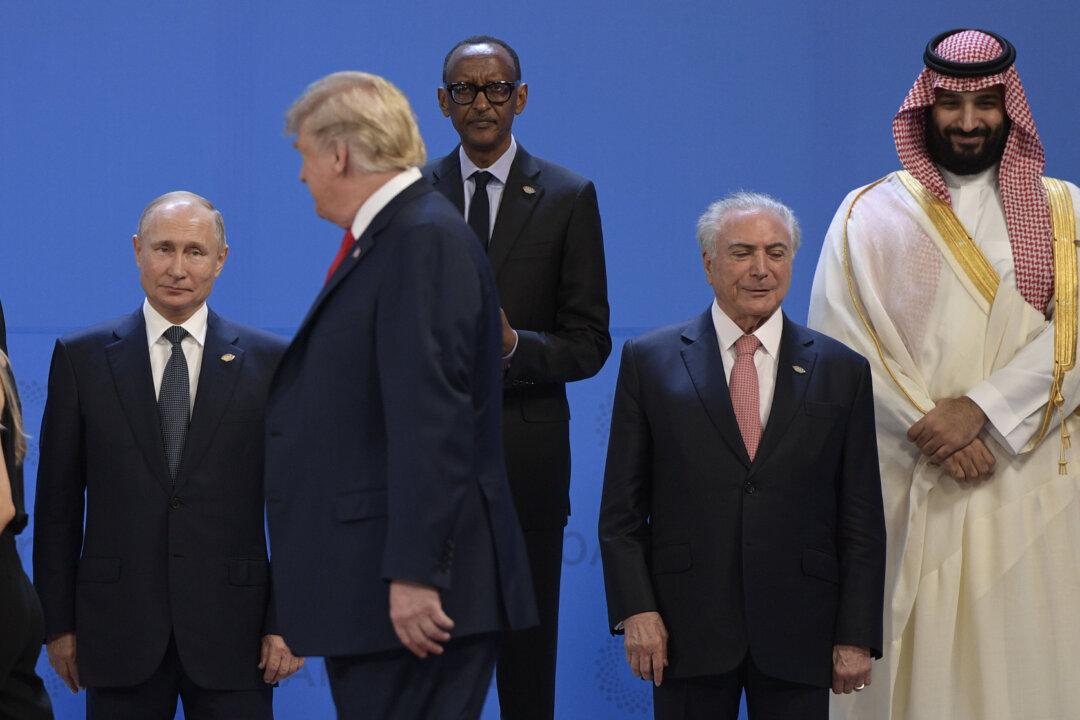Officials representing Russia, Turkey, and Saudi Arabia appear to have doubts about remaining in the Paris climate accord, a senior Trump administration official told reporters at the G-20 summit at Buenos Aires on Dec. 1.
The official made the remarks after the leaders of 20 nations signed a declaration (pdf) that includes a passage reiterating that the United States is withdrawing from the Paris Agreement. The portion of the declaration dealing with the climate caused the most contention among the parties and was the last to be settled, according to the official.





